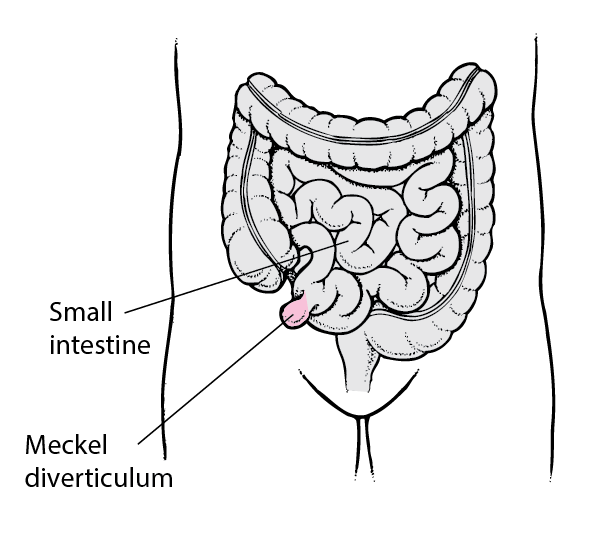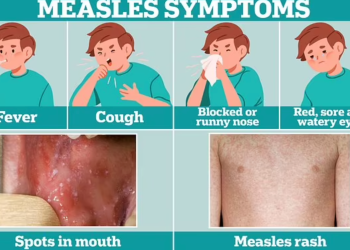Exploring Meckel Diverticulum: Rare Gastrointestinal Anomaly
Welcome to our comprehensive guide on Meckel Diverticulum, a rare but significant gastrointestinal anomaly. In this article, we’ll delve deep into this condition, shedding light on its intricacies, symptoms, diagnosis, treatment options, and recent developments in the field.
Recent advancements in medical research have improved our understanding of Meckel Diverticulum, and we’re here to provide you with the most up-to-date information. Whether you’re a healthcare professional or an individual seeking knowledge about this condition, this guide aims to offer valuable insights.
What Is Meckel Diverticulum?

Unveiling the Anatomy and Significance of Meckel Diverticulum
Meckel Diverticulum is a unique anatomical structure located in the small intestine. To comprehend this condition fully, let’s break it down:
Definition and Anatomy
Meckel Diverticulum is a pouch-like outgrowth that occurs in the lower part of the small intestine, known as the ileum. It’s typically a congenital condition, meaning it’s present from birth and arises from incomplete fusion of embryonic structures. Understanding its anatomical location is crucial for diagnosis and treatment.
Prevalence and Age Groups Affected
This condition is relatively rare, with an estimated prevalence of about 2% of the population. It’s essential to note that Meckel Diverticulum can affect individuals of all ages, from infants to adults. However, it is most commonly diagnosed in children and young adults.
Role of Embryology in Its Development
To comprehend the formation of Meckel Diverticulum, it’s essential to delve into embryology briefly. During fetal development, the small intestine temporarily connects to the umbilical cord, providing nourishment to the growing fetus. As the fetus matures, this connection typically regresses and disappears. However, in some cases, remnants of this connection persist, leading to the formation of Meckel Diverticulum.
Symptoms and Signs
Deciphering Meckel Diverticulum: Recognizing the Telltale Signs
Meckel Diverticulum’s symptoms can be subtle or quite severe, and they may mimic other gastrointestinal conditions. It’s crucial to be aware of the common and uncommon signs to ensure timely diagnosis and treatment. Let’s dive into the details:
Common Symptoms
Abdominal Pain:
One of the hallmark symptoms of Meckel Diverticulum is abdominal pain. This pain can vary in intensity and location, often presenting as cramping or discomfort in the lower abdomen.
Bleeding:
Gastrointestinal bleeding is another significant symptom. It can manifest as bloody stools, which may be dark or have a red tinge. In some cases, this bleeding can be severe and require immediate medical attention.
Anemia:
Chronic bleeding associated with Meckel Diverticulum can lead to anemia, characterized by fatigue, weakness, and pale skin.
Uncommon Symptoms
Intestinal Obstruction:
In rare cases, Meckel Diverticulum can cause intestinal obstruction, leading to symptoms like severe abdominal pain, vomiting, and constipation.
Perforation:
Although rare, Meckel Diverticulum can perforate, causing a serious condition known as peritonitis. Symptoms include sudden, intense abdominal pain, fever, and rigidity of the abdomen.
Diverticulitis:
Inflammation of Meckel Diverticulum, called diverticulitis, can occur, causing localized pain, tenderness, and fever.
Diagnosing Meckel Diverticulum
Unraveling the Mystery: How Meckel Diverticulum Is Diagnosed
Accurate diagnosis is pivotal in managing Meckel Diverticulum effectively. Healthcare professionals employ various diagnostic techniques to identify this condition. Here’s what you need to know:
Imaging Techniques
CT Scan (Computed Tomography):
CT scans are often the go-to imaging method for diagnosing Meckel Diverticulum. They provide detailed images of the abdominal area, enabling doctors to spot abnormalities in the small intestine, including the diverticulum.
Ultrasound:
Ultrasound is a non-invasive imaging method that can help visualize the structure of the small intestine. It is particularly useful in pediatric cases.
Scintigraphy
Technetium-99m Pertechnetate Scan:
Also known as a Meckel scan, this nuclear medicine imaging technique can detect gastric tissue within the diverticulum. It involves injecting a radioactive tracer and then scanning the abdomen to locate the diverticulum.
Differential Diagnosis and Challenges
Rule Out Other Conditions:
Diagnosing Meckel Diverticulum can be challenging because its symptoms may overlap with other gastrointestinal conditions, such as appendicitis or inflammatory bowel disease. Healthcare providers must conduct a thorough evaluation to rule out these possibilities.
Pediatric Considerations:
Diagnosing Meckel Diverticulum in children can be even more challenging due to its varied presentation and the need for specialized pediatric imaging techniques.
Treatment Options
Navigating Meckel Diverticulum: Tailored Treatment Approaches
The treatment of Meckel Diverticulum depends on several factors, including the patient’s age, the presence of symptoms, and any complications. Let’s explore the available treatment options:
Surgical Intervention
Meckel Diverticulectomy:
The primary treatment for symptomatic Meckel Diverticulum is surgical removal, known as diverticulectomy. During this procedure, the diverticulum is excised from the small intestine. Surgeons also assess the surrounding tissue for any complications.
Laparoscopic vs. Open Surgery:
Surgeons may choose between laparoscopic (minimally invasive) and open surgery based on the patient’s condition and individual factors. Laparoscopic surgery typically involves smaller incisions and a quicker recovery time.
Non-Surgical Approaches for Asymptomatic Cases
Observation:
In cases where Meckel Diverticulum is incidentally discovered but is not causing symptoms, doctors may opt for a watchful waiting approach. Regular monitoring and follow-up are essential to ensure that symptoms do not develop.
Medical Management:
Some complications of Meckel Diverticulum, such as inflammation (diverticulitis), may be managed with antibiotics and supportive care.
Frequently Asked Questions (FAQs)
What is Meckel Diverticulum?
Meckel Diverticulum is a congenital outpouching of the small intestine, often present from birth due to incomplete fetal development.
How common is Meckel Diverticulum?
It’s relatively rare, affecting about 2% of the population. It’s more commonly diagnosed in children and young adults.
What are the common symptoms of Meckel Diverticulum?
Common symptoms include abdominal pain, gastrointestinal bleeding, and anemia.
Is Meckel Diverticulum hereditary?
No, it’s typically not hereditary. It’s a congenital condition resulting from fetal development anomalies.
How is Meckel Diverticulum diagnosed?
Diagnosis often involves imaging techniques like CT scans, ultrasounds, and Technetium-99m pertechnetate scans (Meckel scans).
What are the treatment options for Meckel Diverticulum?
Treatment usually involves surgical removal (diverticulectomy) for symptomatic cases. Asymptomatic cases may be observed or managed with antibiotics if complications arise.
Can Meckel Diverticulum cause complications?
Yes, it can lead to complications such as bleeding, intestinal obstruction, and perforation.
Are there any long-term consequences of Meckel Diverticulum surgery?
Most patients recover well after surgery. Long-term complications are rare but possible, and your healthcare provider will monitor your progress.
Can adults develop Meckel Diverticulum?
Yes, although it’s more commonly diagnosed in children, adults can also develop Meckel Diverticulum.
Is there ongoing research on Meckel Diverticulum?
Yes, researchers are actively studying this condition to improve diagnostic methods, treatments, and patient outcomes.
Conclusion
In this comprehensive guide, we’ve embarked on a journey to demystify Meckel Diverticulum, from its definition and symptoms to diagnosis, treatment options, complications, and ongoing research. Armed with this knowledge, individuals and healthcare professionals can navigate the challenges posed by this rare gastrointestinal anomaly.






